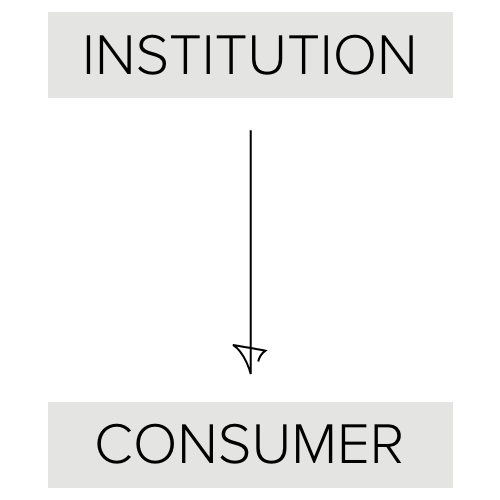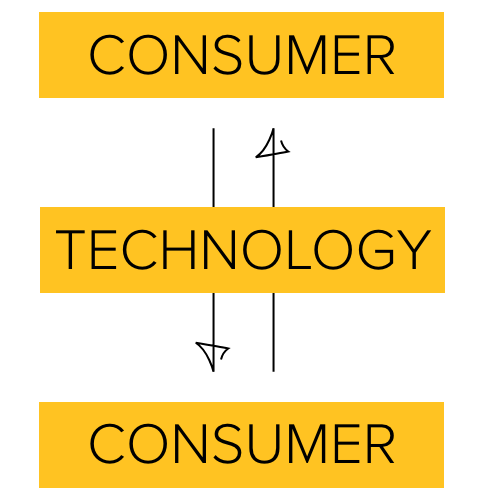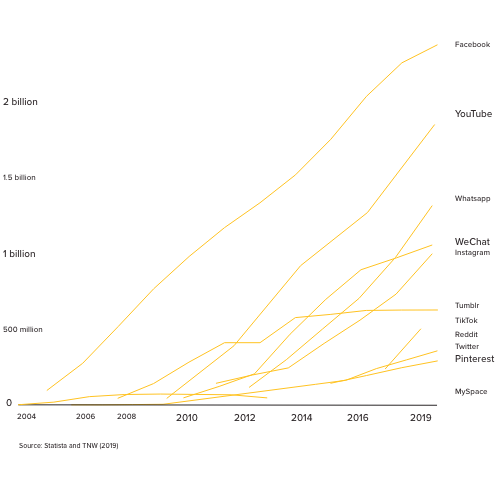
What does that mean for your business? Trust is now built peer-to-peer,
rather than company-to-consumer (traditional advertising).

The company says what it is and the consumer (for the most part) takes that to be true. But institutional trust is fading. Failures of the public trust like the '08 financial crisis, BP oil spill, or Dieselgate have consumers looking elsewhere.

Trust now flows through marketplaces, personal networks and social platforms. Consumers look to their peers to provide the information they need to build trust in a company or idea.

With marketplaces, networks and platforms consumers can now easily share and consume feedback at scale, before ever stepping foot in your store.
.png)
Data Source: Kantar
We realized that the best way to think about this shift is that consumers now sell to each other, and your job as a marketer is to capture, distribute, and shape the broader message around your company through the words of your customers.

Proactively encourage feedback to ensure the voice of your happy customers is accurately represented online. Without a Trust Marketing strategy your brand's sentiment and reputation will be depressed.

With positive customer reviews and video content in hand, invaluable social proof can now be easily shared with your digital network. Text reviews on Google, Facebook and Yelp. Video testimonials on social, home and product pages.

Through your customer's own words, shape the sentiment around your brand in your favor. With a Trust Marketing strategy in place, you are more likely to make a positive impression, build trust, increase conversion and grow your business.
Software to help you efficiently collect customer reviews and videos. Managed services to respond to your customer reviews and social comments quickly and professionally.
Join brands that are building trust with the help of Widewail.